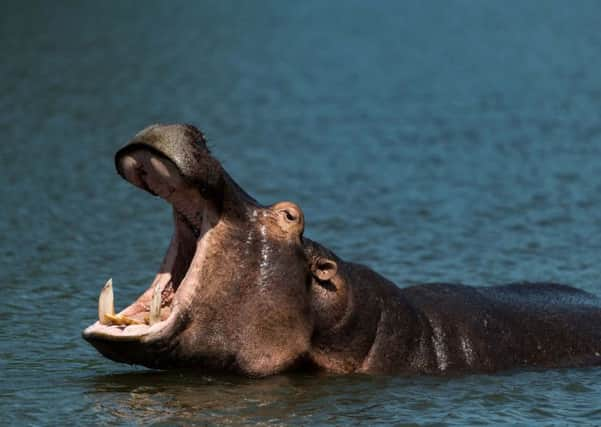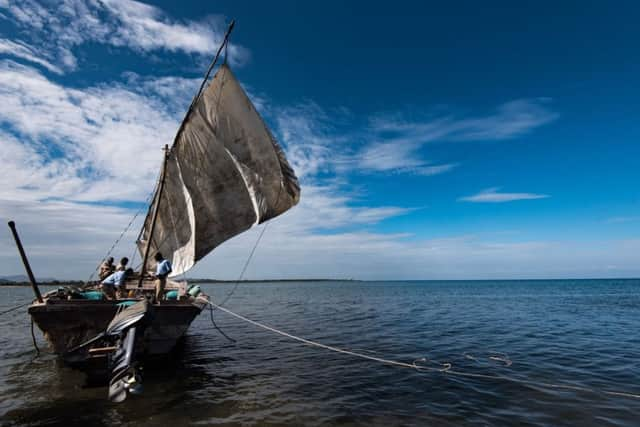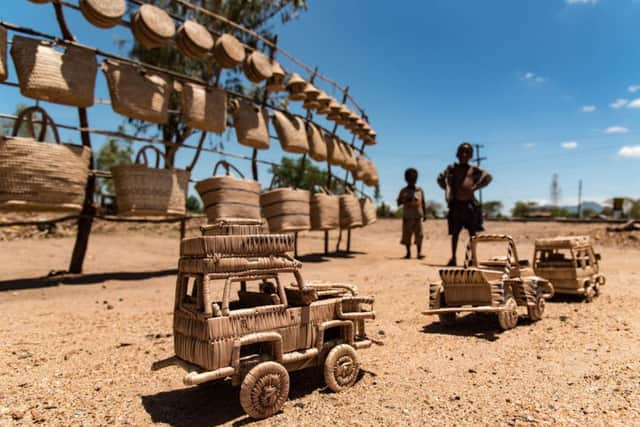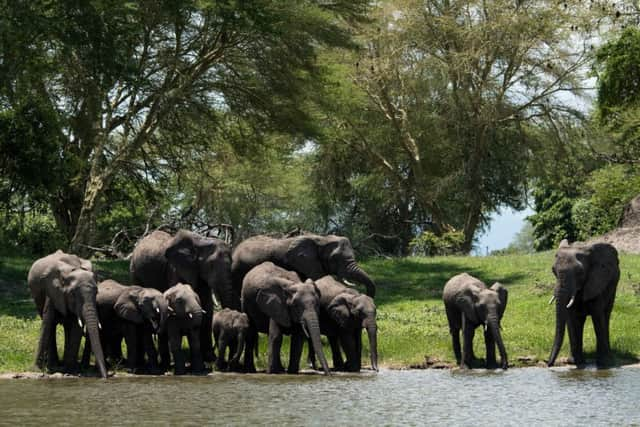Travel review: Safari in Malawi


As tall as a one-storey building and heavier than a pick-up truck, our African giants should be easy to find. But right now, the newest residents of Malawi’s Nkhotakota Wildlife Reserve are proving harder to locate than a needle in a haystack – or an elephant in miombo woodland, in this case.
Brought here as part of a translocation shifting 500 elephants from elsewhere in the country – the biggest project of its kind to date – the animals are, unsurprisingly, a little unsettled.
Advertisement
Hide AdAdvertisement
Hide Ad“They are much calmer now,” insists Emmanuel, an assured guide who boasts a lifetime of experience growing up in the forest. “They don’t charge at us any more ... well, not as much.”


When, after two days of fruitless searching, we do eventually spy an ashen-grey trunk tangled within the branches, the sight is uplifting; the outline of a mother and calf etched effortlessly into their surroundings. The youngster is one of several newborns bringing the total population to 600, but begging the question – where are the other 598?
Stretching 1,800 sq km across the centre of the country, Nkhotakota is sprawling with few access points. But under the management of African Parks, there are plans to complete a solar-powered fence enclosing an elephant sanctuary, and to build new roads.
“For now, this is a wilderness lodge,” says Bentry Kalanga, a big man with an even bigger smile and the co-owner of Tongole, a comfortable lodge deep in the forest on a wend in the Bua river.
Advertisement
Hide AdAdvertisement
Hide AdLong-term resident herds occasionally come to frolic in the shallow, Nesquik-coloured water – including “short trunk”, a local celebrity easily identifiable by his proboscis clipped in half by a snare.


Largely though, the attractions are avian, and we spot several species on an early morning canoe trip along the Bua. A trumpeter hornbill could easily be mistaken for a bawling baby and a water thick-knee crescendos and crashes like a battery draining its juice.
Although planes can be chartered to an airstrip at Tongole, we travel by road to one of this small country’s biggest attractions, Lake Malawi, just 25 miles away.
Although landlocked, Malawi is blessed with sandy beaches fringing the shores of its dominating lake. Curved by stubbly, parched hills, Robin Pope’s Pumulani Lodge perches above Kasanga Bay in the popular southern sector. The breezy, style-conscious property could challenge some of the smartest beach outfits in Mombasa and Zanzibar; from my clawfoot bath, I watch vervet monkeys swipe at the mango-laden canopy and fishermen paddle wooden canoes in the lake.
Advertisement
Hide AdAdvertisement
Hide AdOur breakfast is eaten on a traditional dhow, sailing before a bleeding African sun boils the water, and afternoons are spent kayaking along the reed beds.


Cases of bilharzia, caused by a fresh water-dwelling parasite, put many people off swimming in the lake, but several areas – including Bird Island – are regularly tested and deemed safe for snorkelling. I take my chances while staying at Makokola Retreat, a more rustic Italian-owned resort. A whirlwind of inky gills flaps around my limbs, but soon fades away.
Connected by an open gate, the village beach is a patchwork of nets. As the sun sets, women drum on upturned buckets and sing gaily as men in roughly-carved boats set out for a night of fishing, fuelled by laughter and hypnotic coils of tobacco smoke.
Continuing our journey around the lake, we reach the mouth of the River Shire and the gateway to Liwonde National Park. An hour’s drive through maize fields and villages is followed by a short boat crossing to reach Mvuu, a simple camp leading to a much smarter eight-room lodge, where squirrels flit across pathways and bushbuck graze fearlessly within arm’s length. Many of the elephants translocated to Nkhotakota originated here, and signs of their overbearing presence are clear – grass mowed so short it resembles a golf course and baobab trunks gnawed like apple cores. “At the peak, we had 800 elephants,” says David Nangoma, a community manager for African Parks.
Advertisement
Hide AdAdvertisement
Hide AdAlongside major departures, there have also been some new arrivals. Last year, four cheetahs were reintroduced to Malawi for the first time in a century and, in 2018, there are plans to bring lions and leopards into the mix.


Flanked by hornbills with gleaming red beaks, we go on an afternoon game drive through lowland mopane forest in search of eight resident black rhinos, but despite the pleasant ride, we have little success.
The main focus for Liwonde is its river, home to 3,000 hippos. Gliding along the water, we see several grazing on the banks – almost suicidal in this skin-roasting heat.
Although fewer cats mean hunts are minimal, there’s still plenty of action on the water. Baby crocodiles the size of sprats wriggle at the frothing waterline, an easy snatch for African fish eagles.
Advertisement
Hide AdAdvertisement
Hide AdEarly afternoon, I return to my thatched tent for an outdoor shower and am joined by a herd of elephants, demolishing their way through the valley below my elevated platform. Suspended in awe and silence, I’m too frightened to move. But the encounter confirms something David Nangoma told me: “If well-managed, Malawi can be another big safari destination. We just need to play our cards right.”